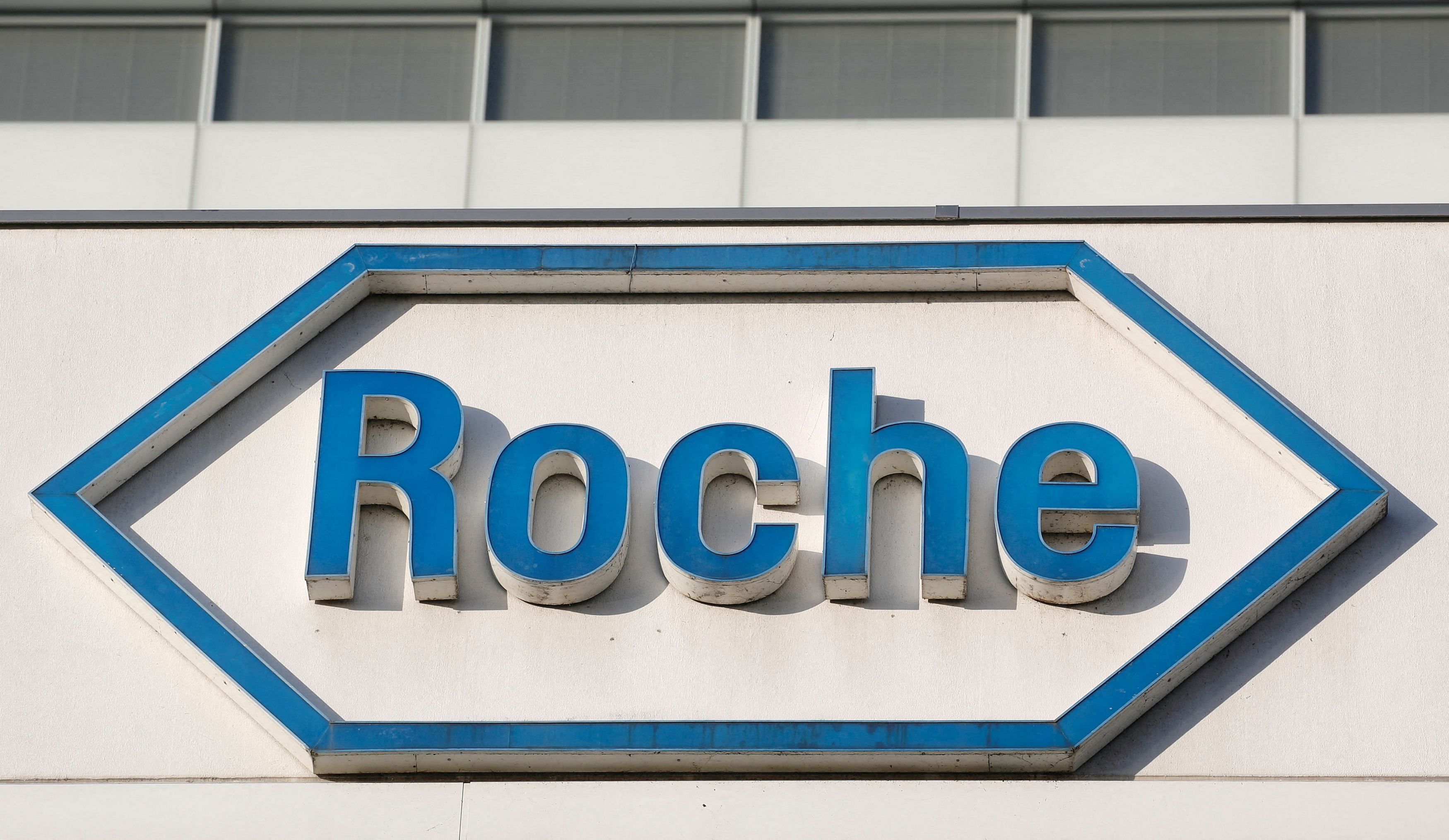
The logo of Swiss drugmaker Roche is seen in Basel.
Credit: Reuters File Photo
New Delhi: Six years after the global release, pharmaceutical giant Roche on Tuesday launched its new medicine against Multiple Sclerosis (MS) in India at a fraction of cost as compared to the US or European markets, offering an easy-to-administer treatment option for Indians who can afford it.
While the annual treatment package of Rs 10-12 lakh is considerably less than what the firm offers in the western world, the price tag is still too high for thousands of Indians suffering from the neurological disorder.
“While there are 24 medicines against MS in the market, the new drug (Ocrevus) is a promising one. But the cost will be a challenge,” said Dr (Col) J D Mukherjee, vice chairman and head of neurology at the Max Super Speciality hospital, Delhi.
Multiple Sclerosis—a neurological disorder affecting 20-40 year old individuals—is one of the commonest non-traumatic disabilities that often comes with vision loss and difficulty in walking in the Indian population.
Developed after a decade of research and trials, the new medicine, according to the company, is the only one that can prevent both the primary progressive MS and the relapsing remitting MS.
India is estimated to house 150,000-200,000 MS patients, of which less than 15 per cent currently receive appropriate therapy, doctors say.
Compared to its competitors, Ocrevus has an easy-to-administer regimen of twice a year where other medicines come with a complex protocol. For instance, one drug, used mainly in pregnant women, requires a daily injection.
“Since 2017, we knew about this drug, but could not use it as the medicine was not available in India. Studies have shown that more than 80 per cent of people with relapsing MS don’t need the support of a cane while walking after using the medicine for 10 years,” said M V Padma, former head of neurology at the All India Institute of Medical Sciences (AIIMS), Delhi.
The company claims over 80 per cent people with relapsing MS and more than 33 per cent with primary MS showed no sign of disability progression and starting Ocrevus two years earlier saved almost 10 years of disease progression in people with Relapsing Remitting MS.
Company officials said that the Indian regulator approved the new medicine on the basis of the global data, but a post-marketing surveillance had been initiated to generate Indian patient data, which would be shared with the Central Drug Standards Control Organisation.
The company has also partnered with the Multiple Sclerosis Society of India, which is lobbying with the government to categorise MS as a “rare disease”, which allows the Union Health Ministry to pay for the medicine for some of the patients.
